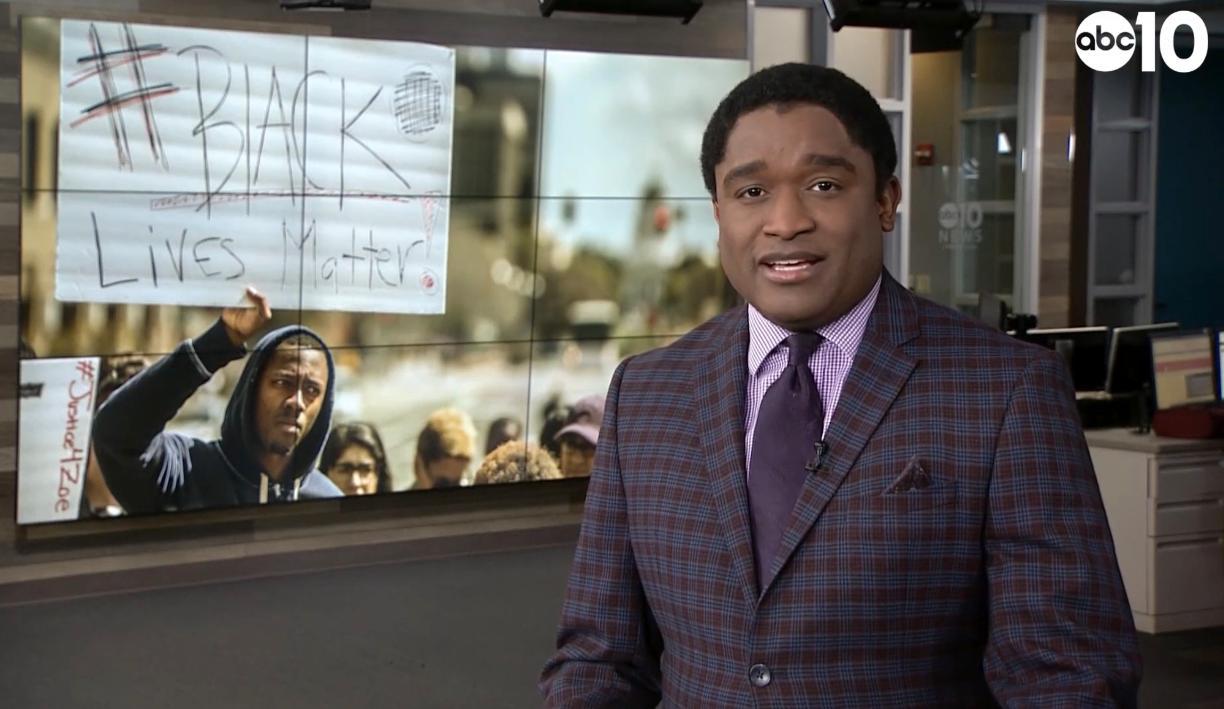Back To Blog
What’s Wrong with Saying 'All Lives Matter?'
June 11, 2020Written by: Morehouse College
Chris Thomas '07 is evening anchor at ABC10 in Sacramento. Chris majored in English and graduated with departmental honors from Morehouse College. He recently made a heartfelt statement about saying Black Lives Matter vs. All Lives Matter. A viewer sent an email asking, "Can anyone please tell me what this trend of thinking is all about? When a person can't say All Lives Matter. All lives do matter, don't they?" Connect with Chris or comment on his segment on his Facebook page.
The question came after Grant Napear, longtime voice of the Sacramento Kings, resigned after tweeting "All LIVES MATTER" in response to the Black Lives Matter movement. Chris used his own personal experiences to explain why saying All Lives Matter to the people across the world proclaiming Black Lives Matter simply doesn't comport with reality.
This segment originally aired on Wednesday, June 3, 2020 on Late News Tonight at 11.
Transcript
Welcome back. I wanted to take a moment to answer a viewer email we got tonight.
Heidi says, "can anyone please tell me what this trend of thinking is all about? When a person can't say all lives matter. All lives do matter, don't they?"
Well, Heidi, of course, all lives are supposed to matter, and given that very truth, that also means Black lives matter.
But I have to tell you it certainly doesn't feel that way.
I've worked hard to get to this point. I went to good schools. I got good grades. I've tried to do good in the world. Never been arrested.
But it's scary when I read headlines like this in a major newspaper.
Getting killed by police a leading cause of death for young Black men in America.
I'm 34 years old. And it doesn't feel like all lives matter when I know I've spent my entire life smiling and doing everything I can to somehow account for the fact that I'm a dark-skinned Black male, to make people feel at ease, that I'm not a threat.
It doesn't feel like all lives matter when folks who look like me are 2.5 times more likely to be killed by police than white people, according to a study conducted by Rutgers University's school of criminal justice.
It doesn't feel like all lives matter when a man who looks like me can be killed by police over 20 bucks. It is beyond disturbing.
It doesn't feel like all lives matter when a plea for help is ignored—ignored by the very people sworn to protect and serve.
And the sad thing is this is not the first time this has happened. Practically every year, it happens again.
And so, people from all walks of life and all races and backgrounds have joined a movement to remind folks.
Black lives matter. Responding to that cry for justice, that cry for equality with all lives matter, is like saying things are already equal, things are already just.
And we know that's not true. Sure, we've come a long way. I'm here tonight, all the way from Birmingham, Alabama, once known as Bombingham, because of the many people who stood up and cried and prayed and marched for a better day.
The march toward better continues in communities all across this country with one simple message—Black lives matter.
